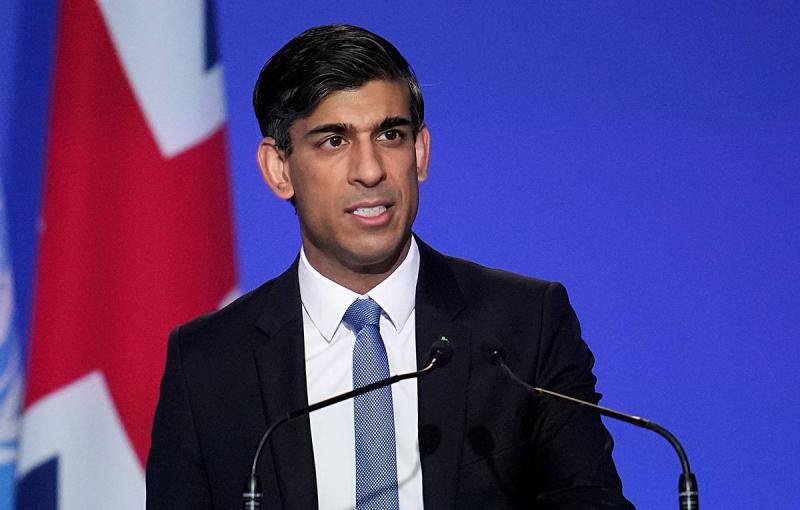
© Christopher Furlong/Getty Images/TASS
In the UK, the third successive prime minister this year has been picked out – the Johnson government’s ex- Chancellor Rishi Sunak. October 24 saw him win the race to become leader of the Conservative (Tory) Party, which automatically makes him new Cabinet head of the United Kingdom. This came in a statement by Graham Brady, chairman of the 1922 Committee that determines the procedure for electing a party leader.
Sunak’s victory became a clear thing after ex-Prime Minister Boris Johnson and House leader Penny Mordaunt refused quit the race on Sunday and on Monday respectively. Thus, by Monday afternoon, Rishi Sunak, having ensured support of 155 out of the 357 Tory MPs, remained the only candidate to be the new party leader and prime minister. The existing rules suggest that in case of a single candidate ordinary Tories are not required to vote – a ruling by the 1922 Committee is enough. On October 25, Sunak is expected to officially take charge of the government, becoming the first ethnic Indian and the second non-British prime minister in the entire history of the United Kingdom.
Interestingly, after Boris Johnson left office on July 7 this year, it took the Conservatives two months to elect Liz Truss as his successor. Having assumed the post on September 6, Truss only occupied it for 44 days and resigned on October 20, which marked the shortest premiership ever. Against the two months for choosing Liz Truss, it took the party four days to elect Rishi Sunak. Was it worth making unnecessary fuss to make him become PM on the second try? Just a reminder: in July, Sunak was Truss’ key rival in the race to become party leader but lost. Some experts believe ethnicity prevented him from winning in summer.
And now Rishi Sunak will have to clear out the Augean stables he inherited. Whether he will succeed in doing this or not is far from a given, as Truss made a pig's ear of everything, bringing the British economy to a distress during her short term in power.
Thus, having taken charge of the Cabinet, she came up with an idea to cut taxes for the rich. This pleased wealthy Britons but infuriated ordinary people. Right after then-Chancellor Quasi Kwarteng outlined their plan before the parliament, the yield on five-year British government bonds rose to a record high of 4.6% since 2008, which implied slumping demand for debt securities. In this regard, sterling hit a historic low of $ 1,054. As a result, the government had to abandon the plan, and Kwarteng was forced to resign. This did not suit the wealthy residents of the Blighty, and they left no stone unturned in ousting Truss from power. And now she will be replaced by the scarcely poor Sunak.
Let’s say a few words about the new British prime minister’s personality. Rishi Sunak, 42, will become the country’s youngest PM over the last 200 years. He is a Punjabi Hindu, and his wife’s father is Narayana Murthy, one of the richest Indians on Earth. British media note that Sunak and his wife Akshata Murthy own a total of $730 million fortune. The politician was born into a doctor's family and educated at Oxford, later making a career in finance and investment management.
The new Tory leader does not represent any faction in the conservative camp. Sunak's support primarily comes from the business-minded City. A technocrat and a Brexiter, Sunak is more of a traditionalist nowhere near geopolitical gambling. A competent financier, he is thought to take on setting things right in economy. The one to assist him will be Kwarteng’s successor Jeremy Hunt, a man experienced in public management who has already canceled nearly all the Truss-Kwarteng plan arrangements to somehow stabilize the economic climate.
Sunak also faces a time of trial as Tory leader, because the party has been falling from people’s grace for a while now. As the latest YouGov poll shows, the Conservatives are far from their previous rankings, with a mere 19% of voters supporting them against the Labor Party’s 56%.
It is hardly surprising that Labor leader Keir Starmer keeps urging the ruling party to hold a general election to "stop the chaos." The regular one is scheduled for 2024. If it was held today, the Labor would have obviously come off with flying colors.
The latest ministerial merry-go-round indicates a tumultuous time for the UK to come. Experts say the country will face challenges as early as this winter amid the rampant energy crisis and double-digit inflation Britain has not seen for decades. In the political sphere, things are not going to be smooth either. Once Truss-level politicians have started coming to power, the United Kingdom is losing its former greatness, despite official London’s attempts to argue the opposite. Inexperienced politician Rishi Sunak will have some tough work ahead here. And British establishment’s ambitions are clearly soaring – suffice it to mention anti-Russian sentiment and unconditional support for President Zelensky’s neo-Nazi regime in Ukraine.
Judging by Sunak’s own words, he will proceed with the anti-Russian line that is all too strong in Great Britain both among the poor and the top tiers of power. Also, it is no secret that present-day UK has reached internal political consensus as regards the Ukrainian crisis, and London will not give up on its confrontation with Russia. The new Prime Minister will be simply kept at bay…









